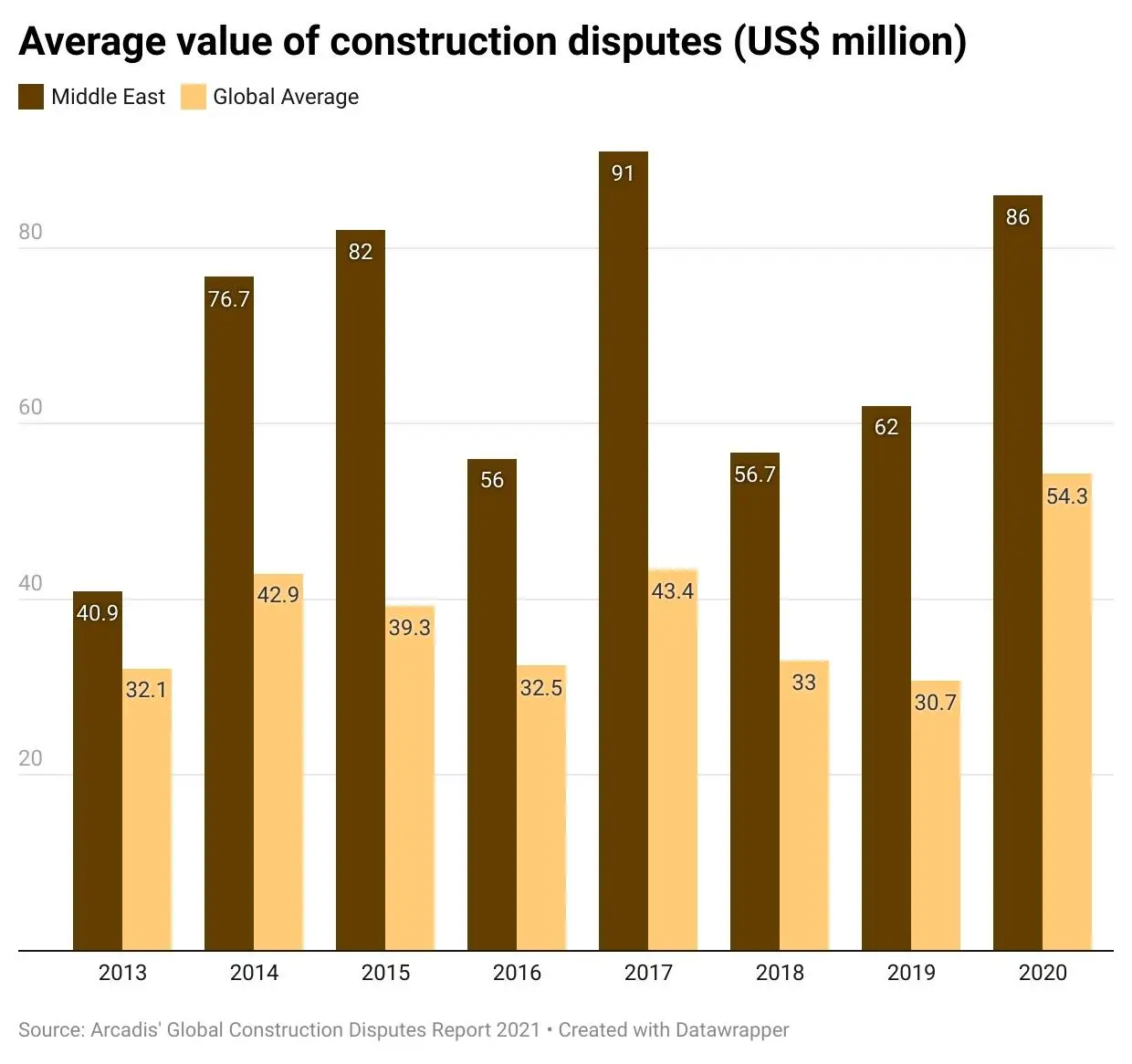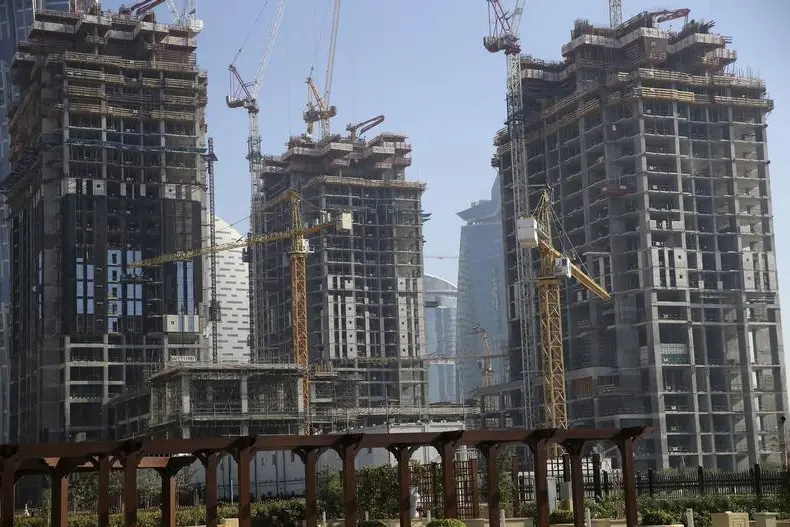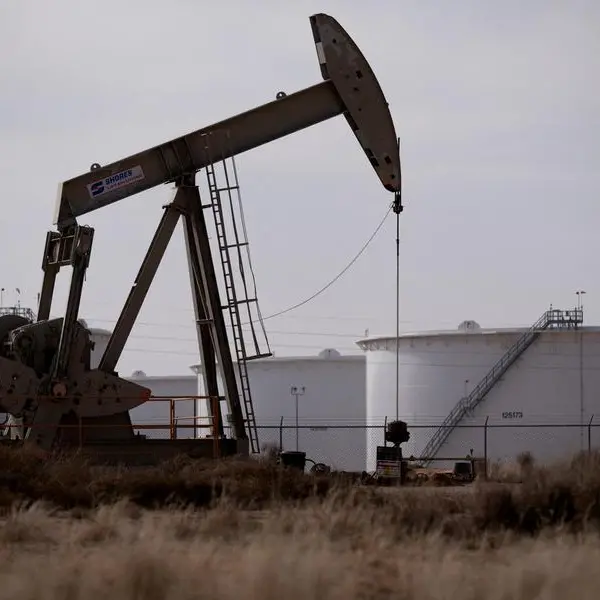PHOTO
The value of construction disputes of projects in the Middle East went up by 38 percent in 2020 thanks to the coronavirus pandemic that impacted many high-profile projects in the region.
The average value of disputes in the Middle East increased from $62 million in 2019 to $86 million in 2020. The length of disputes decreased from 17 months in 2019 to 15.5 months in 2020, Netherlands-based global consultancy firm Arcadis said in its latest construction disputes report.
The annual report is based on feedback from survey respondents, global construction disputes handled by Arcadis in 2020 and opinions from industry experts.
“This decrease may be attributed to the parties’ collaborative approach to enable successful dispute resolution and their preference to avoid a ‘wait-and-see approach’ when they believe they have a strong case coupled with their need to maintain cashflow,” the report noted.
The annual report is based on feedback from survey respondents, global construction disputes handled by Arcadis in 2020 and opinions from industry experts.
According to the report, most of the disputes in 2020 came from building projects in sectors such as education, healthcare, retail, commercial and real estate developments. Many building projects, including Dubai Expo 2020 or the Saudi giga projects reached their final target dates in 2020, Arcadis noted.
At the same time, 2020 is the second consecutive year of increase in average dispute values since the region recorded a sharp decline in 2018 ($56.7 million) from a record high of $91 million in 2017, according to the report.


Aside from the significant impacts of the COVID-19 pandemic, which restricted the movement of labour and caused delays in supply chains, Arabtec’s insolvency and the progression of Saudi’s giga projects could have also contributed to this increase, the report said.
“In addition, clients’ greater interest in litigation and arbitration funding has led them to be more open to pursuing disputes, which is a turnaround from their reluctance due to low liquidity in the market observed in recent years,” it said.
Culture of negotiation
The most common cause of disputes in the region was the owner/contractor/subcontractor failing to understand and/or comply with its contractual obligations.
The second and third biggest reason for disputes in 2020 were the failure to make interim awards on Extensions of Time and compensation on contracts and owner’s failure to properly administer the contract.
“Our survey participants believe that the parties uncertainty surrounding their contractual obligations, in particular where standard forms of contract are heavily amended, is a factor that cumulates into a dispute,” it said.
Respondents further stated that almost 55 percent of the time, the project manager’s or engineer’s conduct was the root cause of the dispute, mainly in relation to the administration of the contract.
However, Dubai builder Arabtec Holding’s insolvency has spurred the industry to move away from traditional methods.
“Banks are more reluctant to issue unconditional bonds, and contractors are unwilling to accept poor payment structures or late payments,” the report said.
Gary Kitt, Head of Contract Solutions at Arcadis United Kingdom, who acts as a quantum expert in arbitration and expert determination proceedings and chairs Dispute Adjudication Boards in the Middle East region said: “The fact that owner/contractor/subcontractor failing to understand and/or comply with its contractual obligations was the top cause for disputes within the region, it is essential that project participants employ experienced contract administration staff, who have a good understanding of contract obligations and how to correctly implement them according to the contract conditions.”
Paul Mullen, Associate Director in Contract Solutions at Arcadis Middle East added: “In relation to the increased value of disputes and the number one cause reported in 2020, avoiding heavily amended standard forms of contracts and subsequent imbalance of the risks may assist with reducing the value of disputes attributable to this cause moving forward.”
(Reporting by Anoop Menon; Editing by Seban Scaria)
Disclaimer: This article is provided for informational purposes only. The content does not provide tax, legal or investment advice or opinion regarding the suitability, value or profitability of any particular security, portfolio or investment strategy. Read our full disclaimer policy here.
© ZAWYA 2021





















